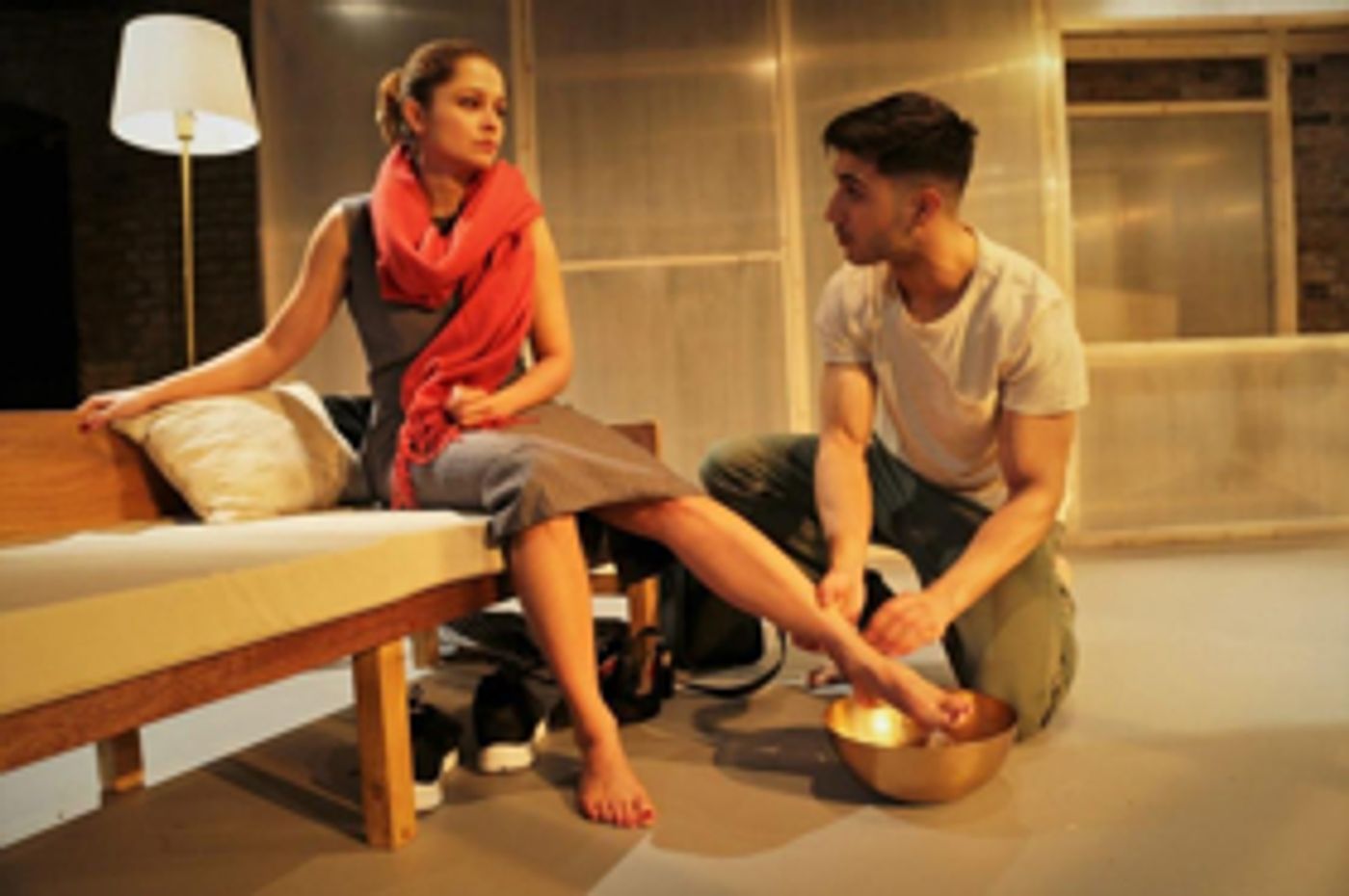Review: MOORMAID, Arcola Theatre

![]() Moormaid could, indeed should, be a wonderful play that explores so many aspects of life in a 21st century European city - that it falls well short of that descriptor is a missed opportunity for all concerned.
Moormaid could, indeed should, be a wonderful play that explores so many aspects of life in a 21st century European city - that it falls well short of that descriptor is a missed opportunity for all concerned.
Melissa is having a (middle class) existential crisis - trapped in a failing marriage, teaching art to students who don't want to learn and keeping up appearances as she inwardly screams. She drinks whiskey, she cracks - smashes - walnuts to externalise her anger and she contemplates suicide.
Suddenly, Mehdi, a talented ex-student, a much missed ex-lover and a force of nature, turns up at the eleventh hour (literally as well as metaphorically) and saves her. He shags her too, and might well scam her if he hangs around much longer.
Mehdi is having a crisis of his own with his brother, Khan, dead, but haunting his waking life, an often puckishly playful guy stuck in the "in-between" but ruthless in his guilt-tripping of Mehdi, who missed a desert rendezvous in (one supposes) Syria, leaving Khan to his fate.
The three circle each other, needing what each has, yet repelled by the choices each has made.
You see - it should be really good!
Some of it is. As Mehdi, Moe Bar-El has something of the look and barely suppressed violence of Robert De Niro in Raging Bull. if he can sort out his diction (the Arcola's Studio 2 is perhaps the most unforgiving space in London if actors don't get their words out perfectly) he will go far.
Sarah Alles-Shahkarami looks a little too much the ingenue for the role of world-weary Melissa, but she shows good comic timing, a mean line in walnut destruction and a dancer's appreciation of space in the sex scene - which is beautifully rendered by movement coach Jess Tucker-Boyd.
Ali Azhar has a lot of fun with Khan, the invisible white rabbit of the trio. He lurks around the lovers, he laddishly bantz with Mehdi about girls they have known and he shows that there are real casualties in Europe as well as the Middle East as Syria's agony continues.
But none of these characters are given credibility by a script that is so busy trying to be so many things that it forgets to bring three people in whom we can believe to the stage.
Mehdi swings wildly from devout Muslim to lad-about-town to talented artist, but we never get to know why he went to fight nor why he came back. He says he is sorry - childishly so - but there is so little self-reflection that we never find out who he is nor who he was.
Melissa also bounces between different personalities (possibly to show the many faces a woman needs to adopt to survive) but because we never get to know her, we never get to care about her either. She castigates Mehdi for his fighting and then... nothing.
Most problematic of all is the insistent question that was in my mind from forst to last - do real people talk like this? Aphorisms pepper the script, but tend to stall the conversations, feeling a bit like a set of cloying memes clogging up your Facebook timeline. They talk at each other and not to each other. And there's quite a lot of shouting.
There is a good play in here because the set up is good, but the writer gets carried away with her own ambition, the drama sinking under the tide of ideas that keep coming to wash away the characters' flimsy foundations.
Moormaid continues at the Arcola Theatre until 19 May.
Photo courtesy Anika Wagner.
Reader Reviews
Videos

